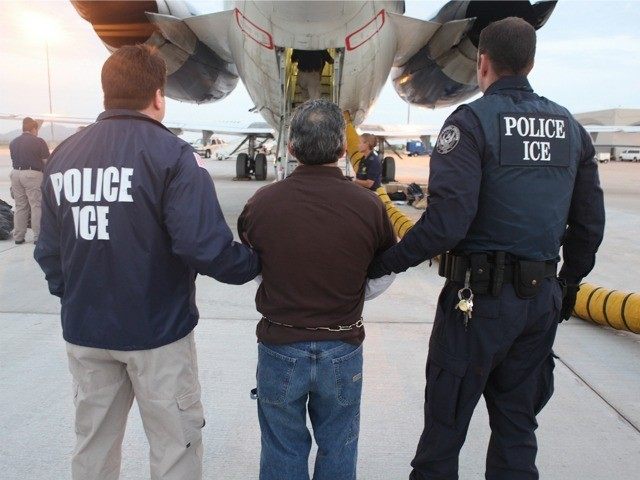Sen. Jeff Sessions is pushing an amendment to a routine airline-regulation bill that would facilitate a computer network to reveal whether tourists, guest-workers and other legal visitors have properly gone home once their visas expire.
Congress has mandated the implementation of fraud-resistant computerized “biometric entry-exit system” for more than a decade, but the exit portion of the system is still not operational at any port of exit.
Various experts say roughly 40 percent of the 11 million to 13 million illegal immigrants living in the United States arrived legally, but did not depart when their visas expired. In 2015, roughly 500,000 foreigners overstayed their visas, according to federal data.
On Monday, Sessions (R-AL), who is the chairman of the Senate Subcommittee on Immigration and the National Interest, filed an amendment to the Federal Aviation Administration Reauthorization Act that would push for the development of a biometric entry-exit system at airports in the U.S.
According to the Senate Subcommittee on Immigration and the National Interest, Sessions’ amendment would overcome a significant hurdle to implementation of the biometric entry-exit system at the nation’s airports: the assistance of the airline industry.
Potential airline objections were diminished with a revenue-securing provision included in the Consolidated Appropriations Act of 2016.
As the subcommittee noted in a memo obtained by Breitbart News, earlier this year, Deputy Assistant Commissioner of U.S. Customs and Border Protection (CBP) John Wagner testified before the subcommittee that the greatest barrier to implementation “is the infrastructure. Our ports of entry were not built for exit processing. Unlike for arrivals, there’s no exclusive and dedicated space for departure controls, so where the biometric collection takes place is critical.”
Sessions’ amendment is distinct from earlier legislation for the entry-exit system, according to the subcommittee, because it is a mandate for cooperation with the airports and airlines.
“Specifically, the amendment would provide that no funds from the Federal Aviation Administration Reauthorization Act may be obligated or expended ‘for the physical modification of any existing air navigation facility that is a port of entry, or for the construction of a new air navigation facility intended to be a port of entry, unless the Secretary of Homeland Security certifies that the owner or sponsor of the facility has entered into an agreement that guarantees the installation and implementation of the [biometric exit system] at such facility not later than two years after the date of enactment of the Act,’” the subcommittee memo reads.
The Sessions approach ensures that that the space for Customs and Border Protection’s biometric exit efforts are airport-specific and not “a one-size-fits-all” approach, said the memo.
“Rather, the amendment allows CBP and each airport that serves as a port of entry to create a solution that works specific to the needs of CBP and the limitations of each individual airport,’ the memo reads. “What it does require, however, is an agreement that guarantees that the system be installed and implemented at the airport within two years.”
According to the subcommittee, the amendment has been endorsed by the Federation for American Immigration Reform (FAIR) and NumbersUSA.
“The 9/11 Commission recommended an entry-exit system as an ‘essential investment in our national security,'” the subcommittee added in its memo. “Had this system been in place before 9/11, we would have had a better chance of detecting the plotters before they struck.”

COMMENTS
Please let us know if you're having issues with commenting.